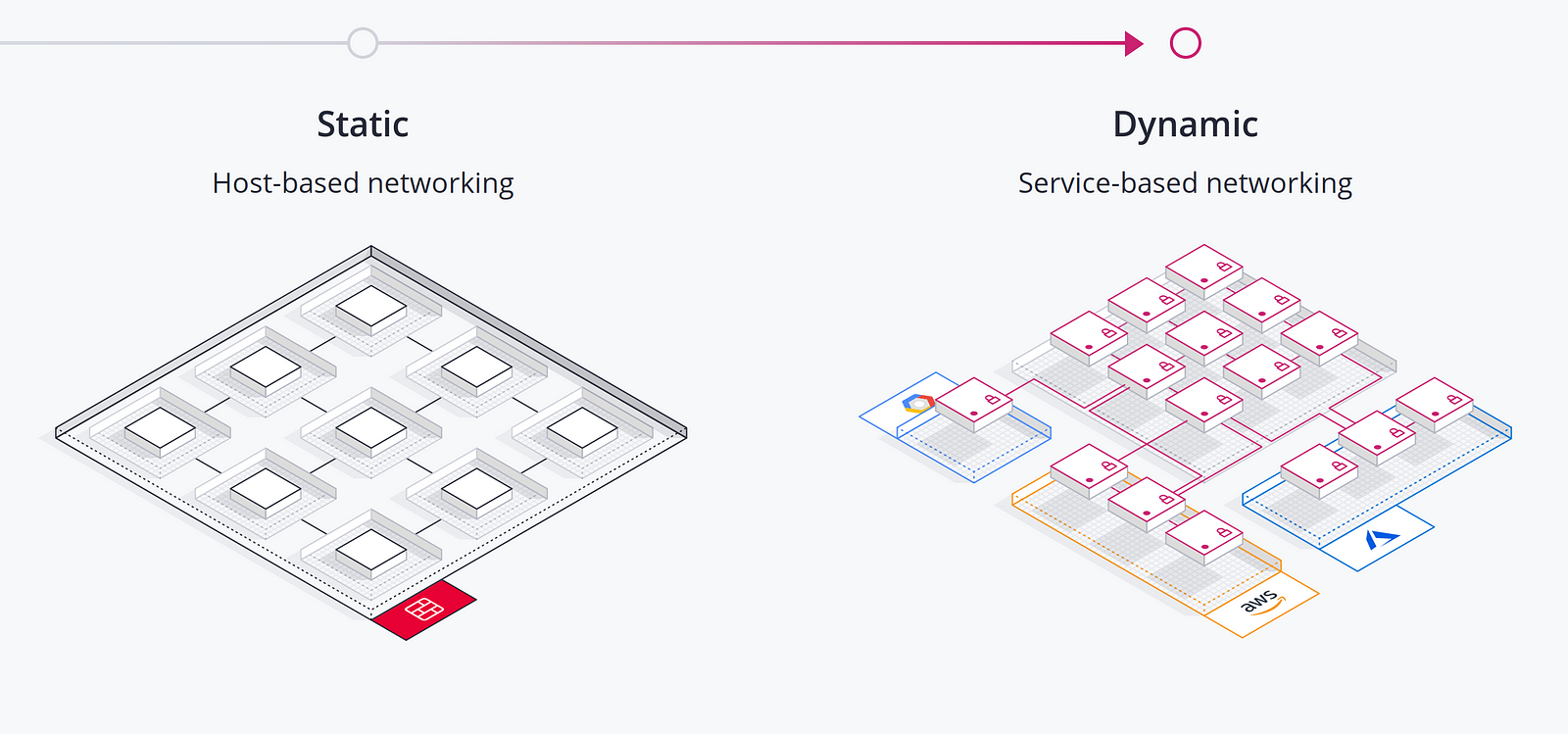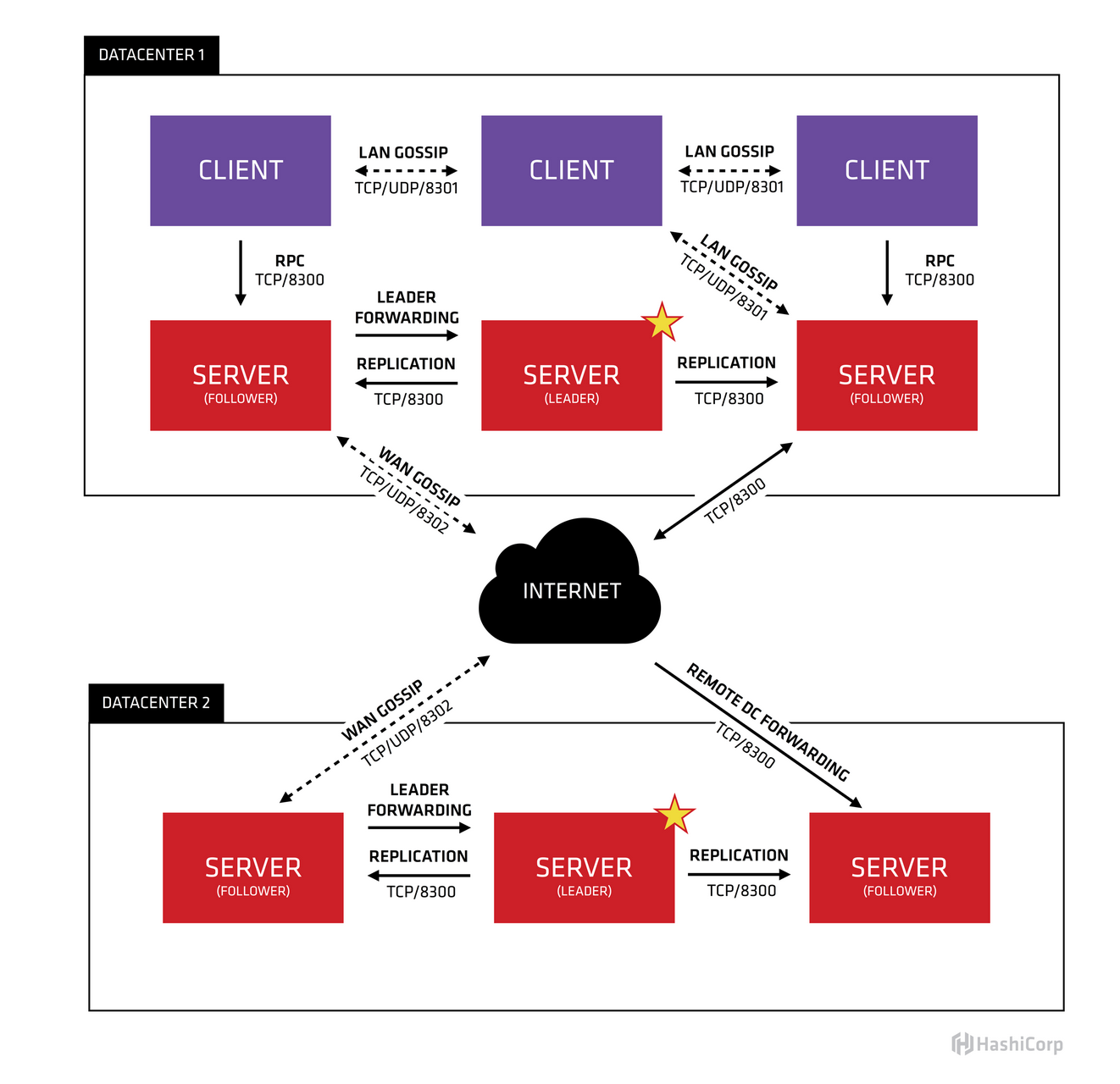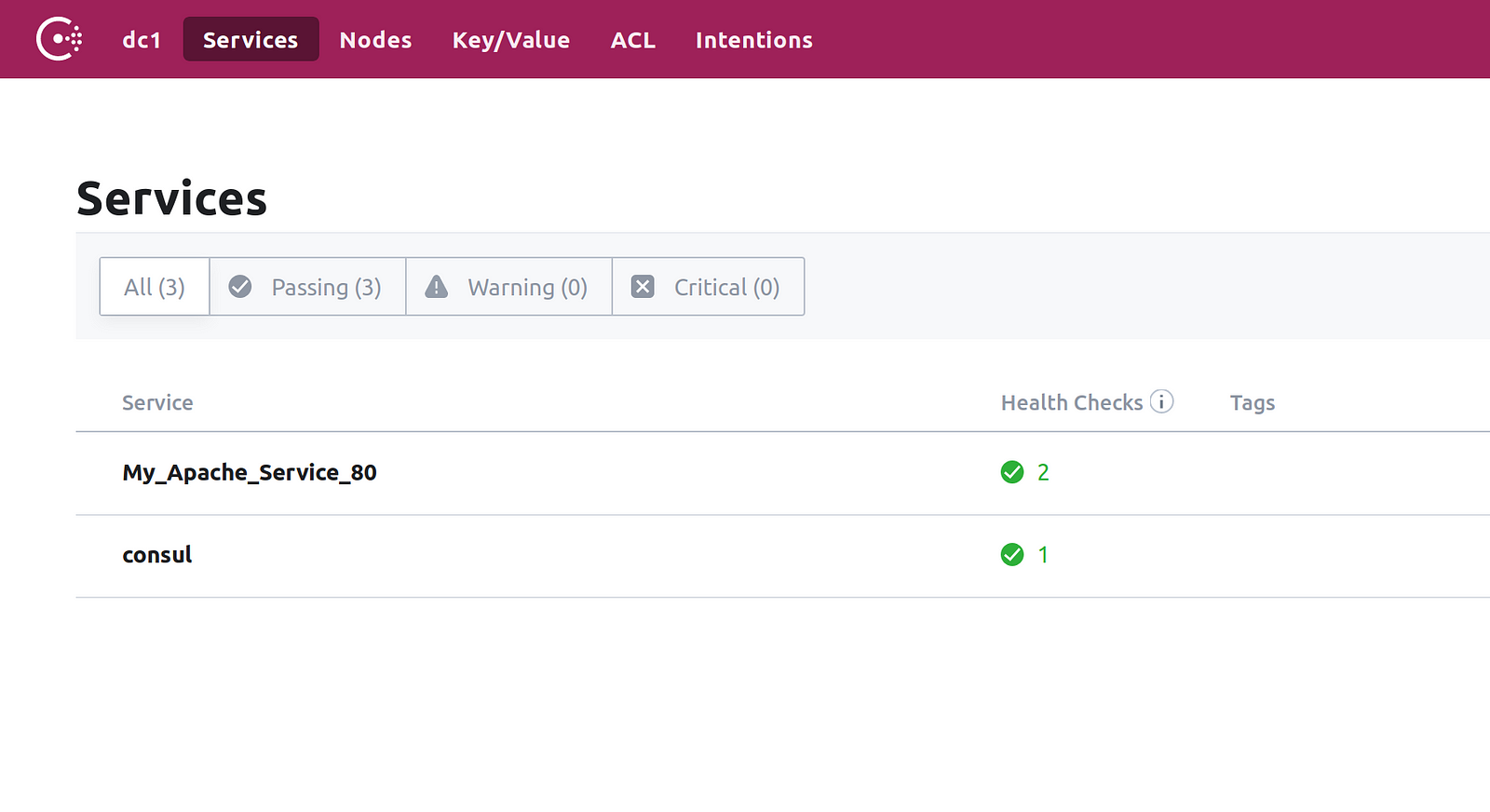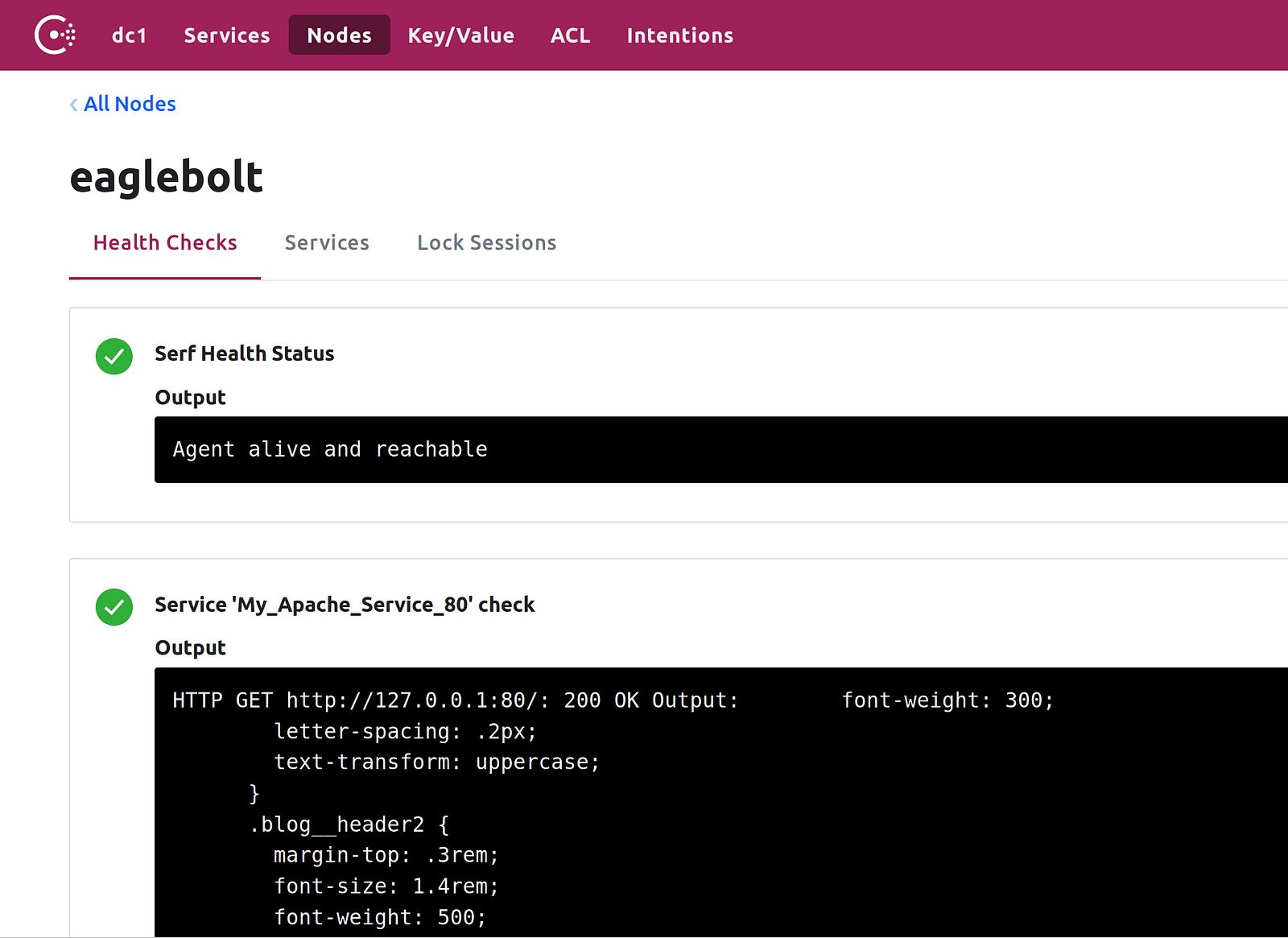Consul is a distributed service mesh to create dynamic infrastructure and manage service configurations across any runtime platform. The project is hosted at Github under the Mozilla Public License, version 2.0.
Consul provides several key features:
- Service Discover
- Health Checking
- Service Segmentation
- Multi-Datacenter
It aims to shift from static infrastructure to dynamic infrastructure changes the approach to networking from host-based to service-based.

Consul has service discovery, registration and health check process that can be more useful to create service-based networking. These features allow services to scale up/down and handle failure without load balancer.

It uses LAN and WAN gossip protocols to manage membership and broadcast messages to the cluster. Also, RPC uses to allow a client to make a request of a server.

Pre-Requirements:
- 3 Server (1 bootstrap and 2 Server)
- Consul Binaries
- Application user to perform installation
Step 1: Download binaries
You can access all consul configuration parameters from that link. Also, download the latest binaries from Consul page which suitable for your operating system
Step 2: Extract and manage permissions
I extracted consul binaries under “/appdata/consulv1” directory. You need to perform these steps at all servers that you will add Cluster.(1 bootstrap and 2 Server)
#mkdir /appdata/consulv1 #cd /appdata/consulv1 #unzip consul_1.4.2_linux_amd64 #chmod u+x consul #chown appuser:appgroup consul #mkdir /appdata/consulv1/config #mkdir /appdata/consulv1/data
Step 3: Create a configuration file for bootstrap and server.
It is important to set this flag for only one server in a datacenter. In a data center, there must be only one bootstrap server.
It is optional to change service ports. I only want to show that you can manage ports on Consul. If you don’t want to change default ports then remove ports from the configuration file.
--Consul Bootstrap Server configuration;
# vi /appdata/consulv1/config/bootstrap.json
{
"bootstrap": true,
"server": true,
"data_dir": "/appdata/consulv1/data",
"encrypt": "e6c0648e561dccadad32d6a3e579b63d",
"datacenter": "DC1",
"log_level": "INFO",
"enable_syslog": true,
"disable_update_check": true,
"ports": {
"server": 8303,
"http": 8501,
"dns" : 8601,
"serf_lan" : 8304,
"serf_wan" : -1
}
}
--Consul Server configuration;
#cat /usr/lib/systemd/system/consulv1-server.service [Unit] Description=Consul Agent (Server) After=network.target [Service] Restart=on-failure User=appuser Group=appgroup Environment=HOME=/appdata/consulv1 EnvironmentFile=/appdata/consulv1/env WorkingDirectory=/appdata/consulv1 ExecStartPre=/bin/echo IP=`/bin/hostname --ip-address` > /appdata/consulv1/env ExecStart=/appdata/consulv1/consul agent -ui -config-dir=/appdata/consulv1/config -client $IP -bind $IP ExecReload=/bin/kill -USR1 $MAINPID PermissionsStartOnly=true [Install] WantedBy=multi-user.target
Step 4: Create a service configuration file
I added the service configuration file for RHEL7-Centos and Fedora. If you have run on another platform you should create a service file to start and stop Consul.
#cat /usr/lib/systemd/system/consulv1-bootstrap.service [Unit] Description=Consul Agent (BootStrap) After=network.target [Service] Restart=on-failure User=appuser Group=appgroup Environment=HOME=/appdata/consulv1 EnvironmentFile=/appdata/consulv1/env WorkingDirectory=/appdata/consulv1 ExecStartPre=/bin/echo IP=`/bin/hostname --ip-address` > /appdata/consulv1/env ExecStart=/appdata/consulv1/consul agent -ui -config-dir=/appdata/consulv1/config -client $IP -bind $IP ExecReload=/bin/kill -USR1 $MAINPID PermissionsStartOnly=true [Install] WantedBy=multi-user.target
#cat /usr/lib/systemd/system/consulv1-server.service [Unit] Description=Consul Agent (Server) After=network.target [Service] Restart=on-failure User=appuser Group=appgroup Environment=HOME=/appdata/consulv1 EnvironmentFile=/appdata/consulv1/env WorkingDirectory=/appdata/consulv1 ExecStartPre=/bin/echo IP=`/bin/hostname --ip-address` > /appdata/consulv1/env ExecStart=/appdata/consulv1/consul agent -ui -config-dir=/appdata/consulv1/config -client $IP -bind $IP ExecReload=/bin/kill -USR1 $MAINPID PermissionsStartOnly=true [Install] WantedBy=multi-user.target
--Enable and start services;
#systemctl enable consul-bootstrap #systemctl start consul-bootstrap #systemctl enable consul-server #systemctl start consul-server
I added a basic python code to show how to check consul servers’ health and register an existing service to the consul.
import consul
def consul_conn_check(host):
c = consul.Consul(host=host)
state = False
try:
c.catalog.nodes()
state = True
except ConnectionError:
pass
finally:
return state
#print(consul_conn_check("127.0.0.1"))
def register_consul(host, port, service_id=str):
service_address = "127.0.0.1"
conn = consul_conn_check(host)
if conn:
c = consul.Consul(host=host)
result = c.agent.service.register(
'My_Apache_Service_80',
service_id=service_id,
address=service_address,
port=port,
check={
"DeregisterCriticalServiceAfter": "3m",
"http": "http://{}:{}/".format(service_address, port),
"interval": "5s",
"timeout": "1s"
}
)
return result
else:
return False
print(register_consul('127.0.0.1', 80, "ApacheID_80"))


https://www.programcreek.com/python/example/104783/consul.Consul

